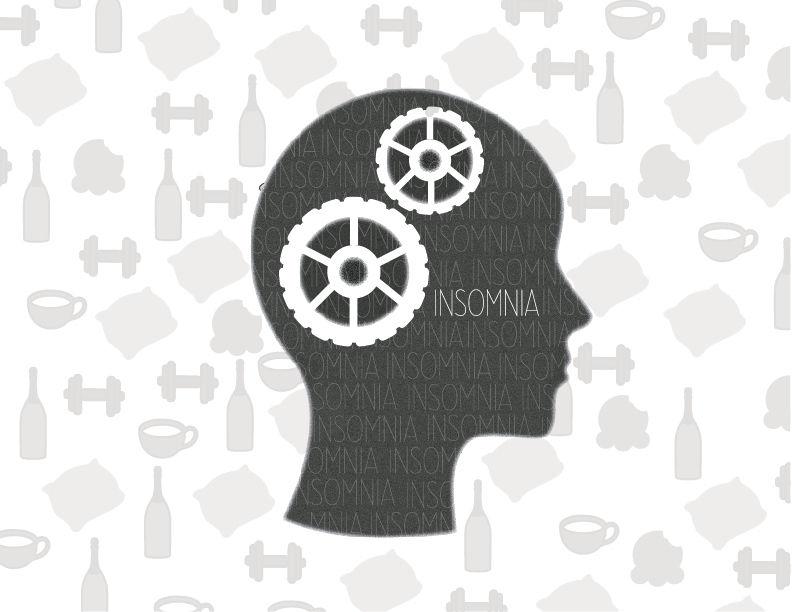The Sleep Management Institute states that an estimated 30 to 50 percent of the general population is affected by insomnia, with ten percent having chronic insomnia.
In an article by the American Academy of Sleep Medicine, Lawrence Epstein, medical director of Sleep HealthCenters and instructor of medicine at Harvard Medical School, states that maintaining adequate sleep is essential to better health and study habits in the lives of college students.
“Recent studies have shown that adequate sleep is essential to feeling awake and alert and maintaining good health to work at peak performance,” Epstein said. “After two weeks of sleeping six hours or less a night, students feel as bad and perform as poorly as someone who has gone without sleep for 48 hours.”
Evan Grisham, political science freshman, said he has not been professionally diagnosed with insomnia but does not remember a point in time where he did not have trouble falling asleep.
“You can lay there for hours and just stare at the ceiling and not sleep,” Grisham said. “If I don’t sleep, like if I haven’t for a long time, I always feel tired. But you just get used to that feeling and so you don’t even question [it]. It’s just natural.”
Grisham said that a common misconception about having insomnia is that people often think it’s due to poor sleep habits, not recognizing it as insomnia.
“Just be aware that when you tell people to go to sleep, it’s not that they don’t want to. They just haven’t been able to,” Grishman said.
Dena George, M.D. of family medicine and Garry Gore, M.D. of emergency medicine created a podcast, that is available to listen to on the Student Health Services website, discussing and differentiating insomnia and the various tips to maintaining better sleep habits while in college.
“Insomnia is the medical definition for not sleeping. The criteria for insomnia is difficulty in initiating sleep or maintaining sleep, or even waking up too early with associated daytime dysfunction,” George said.
Both Gore and George discuss six daily habits of college students that are actually harmful to a good night’s sleep and the difference from insomnia in their podcast. The six bad habits are: Napping, caffeine, alcohol intake, exercise, eating late at night and electronic device usage.
For most students, the idea of making good grades outweighs the idea of getting a good night’s sleep, however Gore says that this idea has the opposite effect.
“We find that the effects of pulling an all-nighter decrease your ability to capture memories for two days or more after the fact,” Gore said. “So, you don’t do as well on the test the next day, and you don’t take in new information very well in your other classes. It’s not optional, sleep is absolutely essential.”
Another factor is caffeine and alcohol intake before bed. Gore states that having caffeine past 4:00 p.m. has the potential to keep one awake past midnight, and although for some, alcohol makes going to sleep easier, it doesn’t produce better, quality sleep, according to Gore.
Other habits to avoid are eating big meals and exercising before bed. Exercising before bed raises one’s body temperature and produces a dysfunctional start to going to sleep.
The use of electronic devices before bed is arguably one the most important bad habits to avoid according to Gore. Gore said the body is trained to awaken itself when the sun comes up, and using electronics at night artificially stimulates the mind, therefore causing the melatonin production to be reduced.
“Text message or tweets, or Facebook things that come, even on a vibration mode, that can still be very disruptive during sleep as well as the light that comes every time you get a message,” George said. “The light that comes up or the light on your clock can be disruptive to sleep as well.”
Despite when all of these tips have been monitored effectively, if one still can’t fall asleep George suggests getting out of bed and participating in a low-energy activity to calm the mind.
“We recommend that if you’re in bed and it’s taking longer than twenty minutes, to get out of bed and to go do something in a low-light environment,” George said. “Something that’s relaxing, maybe reading, writing, and then waiting until that time when you’re feeling sleepy to go back to bed and try to sleep again. So don’t toss and turn for hours but rather get up and try something relaxing and then try it again when you’re ready to go back to sleep.”
Discussing sleep research
November 9, 2017
Photo by By Mariah Colón
Insomnia
Donate to The Battalion
Your donation will support the student journalists of Texas A&M University - College Station. Your contribution will allow us to purchase equipment and cover our annual website hosting costs.





















